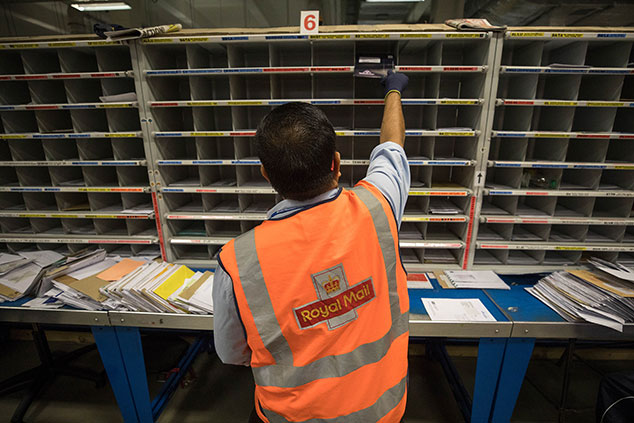
However, in the same piece I also mentioned the downside of owning shares in your company – they can go down. You might think that doesn’t matter, but the point is that no one should ever have too many eggs in one basket (this is why we worry when people tell us that property is their pension, by the way).
If the shares in the firm you work for are doing badly, there’s a fair chance the company is also doing badly – and if that is the case, it might not just be your savings at risk, it might be your job, too.
A nice (or nasty) reminder of this comes from shares in Royal Mail. When the firm listed in 2013 all post workers were awarded 613 shares. Those who signed up for more will now have 913 shares. They could sell them at any time – but doing so within five years would have triggered a tax bill. Most waited – and the five years are up this week.
The problem (such as it is) is that if they sell now they won’t get quite as much cash as they had hoped. At their peak, the shares were worth £5,770. Ten days ago, they were worth £4,480. On Friday, after the company issued a profits warning, they were worth only £3,132.
Experienced investors will shrug – there’s always risk in owning individual shares and if you can’t afford that (financially or emotionally) you shouldn’t own individual shares. But most people included in employee ownership schemes aren’t experienced investors. Their shares may be the only equity investment they are aware of (most people will also have a pension on the go via auto-enrolment, of course) and they may have little sense that the only way is not up.
Read some of the comments from Royal Mail staff and you will see the problem. We “relied on our free shares to pay for this” says one worker who had been planning a cruise to New York. He wasn’t alone. The “collapse”, says The Guardian, has forced staff (who will get £895 less than they expected when they signed up to sell their shares) to “cancel holidays and has upended plans for other spending and debt repayments”.
The point here is that if we are to extend employee share ownership (the Labour plan doesn’t do this, by the way, but the Conservative Party is keen on the idea) we have to combine its rise with some education on how equity markets behave (of the type I bet Northern Rock employees – who often took bonuses in shares – wish they had had). Without that, the risks of disappointment are too high.